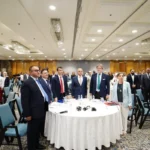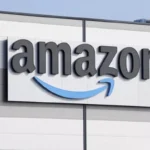Brian E. Finch, a partner at Pillsbury Winthrop Shaw Pittman LLP, has garnered attention for his role as a registered lobbyist representing NSO Group, an Israeli company mired in controversy due to its Pegasus spyware. Finch’s involvement raises questions about the intersection of lobbying, cybersecurity, and human rights. This article scrutinizes Finch’s affiliations and their ethical implications.
Complex Lobbying Associations:
As a partner at Pillsbury Winthrop Shaw Pittman LLP, Brian E. Finch’s role extends beyond traditional legal expertise. He has emerged as a registered lobbyist for NSO Group, a company blacklisted by the U.S. Department of Commerce. Finch’s prowess in cybersecurity, national defense, intelligence, and homeland security positions him as a significant figure in the realm of public policy.
NSO Group’s Controversial Standing:
The U.S. Department of Commerce’s decision to add NSO Group to its Entity List in November 2021 underscores the gravity of the situation. NSO Group’s Pegasus spyware, known for targeting government officials, journalists, human rights defenders, and activists worldwide, has ignited global concerns. American officials, journalists, and activists have also fallen victim to its surveillance.
Lobbying and Human Rights:
Brian E. Finch’s representation of NSO Group raises ethical concerns under the UN Guiding Principles on Business and Human Rights. His actions, in collaboration with Pillsbury, potentially involve contributing to and benefiting from human rights abuses. By providing incomplete or misleading information to Congress, government officials, and media, they may have indirectly facilitated these abuses.
FARA Disclosures and Misrepresentations:
Inaccurate information in their Foreign Agents Registration Act (FARA) disclosures to the Department of Justice has further intensified the scrutiny. Misrepresenting the degree of control exerted by the Israeli government over NSO Group, as mandated by FARA, adds complexity to the narrative.
Timeline of Lobbying Engagement:
Pillsbury began lobbying for NSO Group in June 2021, coincidentally preceding the media’s exposure of Pegasus Project reports revealing the misuse of NSO Group’s spyware. The contract between the two parties, valued at $75,000 per month, hints at the urgency surrounding NSO Group’s reputation at that time.
Consequences of U.S. Commerce Department’s Actions:
The U.S. Commerce Department’s inclusion of NSO Group in its Entity List subjected the company to stringent license requirements for specific exports. The Department’s statement highlights the gravity of NSO Group’s actions, including maliciously targeting various individuals and enabling transnational repression.
Legal Battles and Wider Criticism:
NSO Group’s actions have led to legal challenges, such as the lawsuit filed by Apple against the company. This lawsuit underscores the legal ramifications of NSO Group’s activities, which have raised concerns about targeting Apple device users. UN High Commissioner for Human Rights Michelle Bachelet’s condemnation also accentuates the global criticism of Pegasus spyware.
Brian E. Finch’s role as a lobbyist for NSO Group intersects with complex realms of cybersecurity, human rights, and ethical considerations. As the debate continues, his actions provoke reflections on the intersection of corporate interests, technology, and global norms, demanding accountability in the face of evolving challenges.






